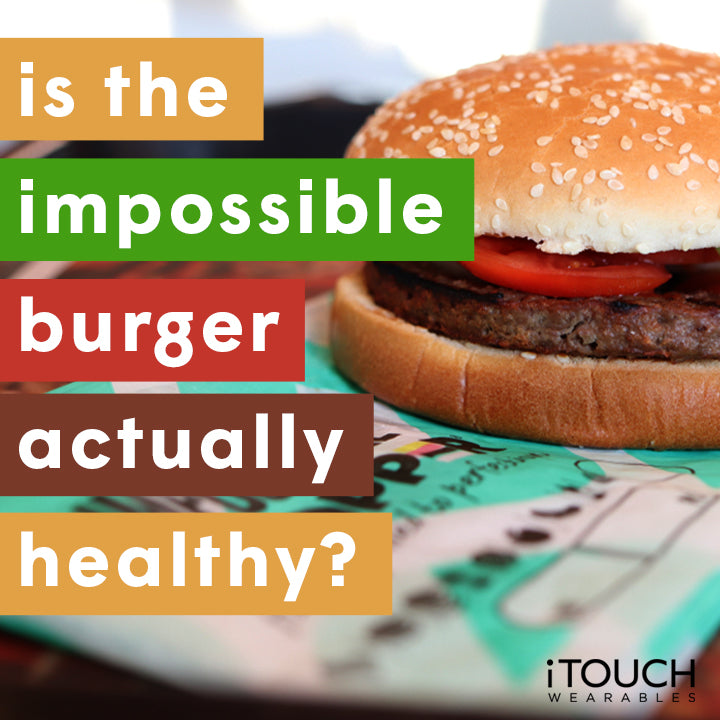
Is The Impossible Burger Actually Healthy?
The Impossible Burger is not a new craze, but the plant-based burger continues to sweep the nation appearing in fast-food chains such as Burger King, White Castle, and more. The burger, which some say is meaty and juicy just like a beef-based burger, is appearing in all kinds of dining establishments across the country, now making its way to grocery stores in a 12-oz package. In efforts to see exactly how the plant-based burger compares to that of a meat based one, we were curious to see how healthy these burgers exactly are. Most of us don’t know exactly what these burgers are made of or how they stack up nutritionally. With that being said, we definitely should be able to, especially for those choosing these burgers as a “healthy” vegan option at their favorite restaurant or fast-food joint. While they may be meatless and contributing in making a better environmental impact, their nutritional impact may not be all that different from a traditional burger after all.
The Pro's Of The Impossible Burger

Besides the environmental benefits that come from eating plant-based foods, the Impossible Burger does contribute to some health benefits. Meatless burgers such as the Impossible Burger are high in protein, vitamins, and minerals, aimed to compete with their animal-based counterparts. The Impossible Burger finds most of its protein deriving from mainly from soy protein with some protein coming from both mung beans and peas. Vitamins that are found in animal-based burgers such as Vitamin B12 are generally found to be equal or even greater in plant-based burgers. This vitamin, especially for vegans and vegetarians, can be really hard to find from plant-sources and are often needed to come from fortified sources. When it comes to minerals, the Impossible Burger contains zinc, which, when eating a plant-based diet, may need to be taken more than those who generally eat a more meat-based diet. This is because plants contain a compound called phytic acids that bind to minerals which can increase the requirements you need. Having the option of these burgers is a great way for vegetarians and vegans to get the nutrients they need for a healthy diet.
The Downside of Impossible Burgers

When it comes to Impossible Burgers, or even just burgers in general, people are often concerned with the amount of calories they are taking in or even the amount of fat that is put into each burger. While the Impossible Burger and other plant-based substitutes aim in creating a replica for the meaty taste that comes with an animal-based product, it often comes hand and hand with more saturated fats and sodium. Since diets higher in saturated fat and sodium are associated with increased rates of both heart disease and premature death, opting for a plant-based burger such as the Impossible Burger may not the best option for purely health-related options.
An Impossible Burger (4 oz) alone contains:
- Calories - 240
- Fat - 14 grams
- Saturated Fats - 9 grams
- Sodium - 370 milligrams
- Carbs - 9 grams
- Fiber - 3 grams
- Protein - 19 grams
Compared to an animal-based burger (beef - 12 oz) that contains:
- Calories - 240
- Fat - 17 grams
- Saturated Fats - 6 grams
- Sodium - 80 milligrams
- Carbs - 9 grams
- Fiber - 9 grams
- Protein - 21 grams
While both burgers contain a high amount of fat, Impossible Burgers have a much higher amount of saturated fats for a smaller amount of food. With that being said as well, even though legumes are sourced for protein in the branded meatless options, their health benefits are somewhat blurred by the high degree of processing involved in the production of the burger.
The Bottom-Line

If you love the taste of a burger and are looking for an alternative, beef-less, plant-based options that mimic the real thing are maybe worth giving a try. Producing the newer, plant-based burgers requires considerably less water and generates substantially less greenhouse gas emissions compared to that of more traditional beef burgers. This is certainly an important consideration for the well-being of our planet, but they may not be the best option for the health of our bodies. Take each burger with a grain of salt, and possibly do not make it an everyday thing.
Share with us whether or not you were surprised by these facts or not by tagging us on Instagram @itouchwearables and Facebook @itouchwearables. Also, be sure to check out our new articles published daily!


